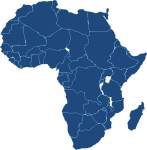
Recently, I had the pleasure of conversing with Nigerian custom furniture mogul Ibukun Awosika during Wharton’s recent Africa Business Forum that we both attended. She very kindly had a few words of advice for investors leery of putting assets in Africa: “Don’t listen to CNN.” The news media are highly selective in highlighting trouble spots, such as violence in the Democratic Republic of Congo or the tumultuous reign of Zimbabwean president Robert Mugabe. Rarely, she said, do Westerners hear of Africa’s triumphs, such as galloping economic growth (that showed little sign of slowing until a recent collapse in commodity prices).
“Africa … is highly diverse. It is [not] one country. It is 52 different countries.” She takes to task anyone who still clings to the Western business stereotypes that dog the continent. Not checking out business opportunities in such a vast and underdeveloped market is costing those people money, she and others argued at the forum. “Those markets that CNN tells you are not the good markets are actually the hidden secret,” said Awosika, general manager and CEO of The Sokoa Chair Centre, a privately held furniture manufacturer with several million dollars a year in revenue. The former chemist’s implication: Her enterprise serves as an example of the lucrative deals in African countries that savvy outside investors can encounter, if they know where to look. Personally, I could not agree more.
After centuries of colonialism, and despite bloody civil wars and turmoil in some of its nations, Africa has the potential to be counted among the emerging markets poised to offer outsized returns for foreign investment, according to investors and entrepreneurs at Wharton’s recent Africa Business Forum. Still, they caution, transitional or ill-defined regulatory frameworks pose significant downside risk to doing business there.
According to Judith McHale, managing partner of the Global Environment Fund/Africa Growth Fund and a former Discovery Communications chief executive, the reality of the risk diminishes with the application of due diligence and thorough market research. “All the dynamics for us showed an incredible opportunity,” McHale said. Micro-lending programs, of the sort popularized through the research of Nobel Prize-winning economist Muhammad Yunus, already address, if not completely satisfy, the low end of the lending market. This is indeed a sector that my company JN Financial has dived into and intends to expand exponentially. Sovereign wealth funds and other large investments are active at the other end of the spectrum. But, McHale added, there is a critical shortage of investment players in what she called the “critical middle” — the small and medium-sized businesses that form the stout foundation of national economies. “We saw an emerging consumer class wanting quality goods and services. Our model for this is what happened in the United States in the 1950s.”
African business people are quick to point out that the uninitiated can soon find themselves in over their heads because they lack the ability to respond quickly to change. Uncertainty is almost a given, they said, although infrastructure and institutions are becoming more reliable through steady development and reform.
Read More About…
In the developed world, Awosika noted, “you don’t have to think about power.” But power outages can cripple her production facilities and threaten business, so she keeps back-up generators on standby at her factory in Nigeria. “I have to think about power every day.” Infrastructure issues aren’t the only hurdle. Changes in government policy, which can happen quickly and with very little notice, can instantly invalidate a business plan, she said.
Like the time in 2004, when the Nigerian government banned the importation of furniture, giving practically no notice. Awosika feared the ban would destroy her business, which at the time depended on overseas manufacturers. Her company approached a key supplier, office furniture maker SOKOA S.A. of France, with the idea of a joint venture to produce chairs in Nigeria. With an investment of nearly $200 million, the gamble paid off in about a year. “You’re going to have to be very creative. If you’re an entrepreneur in Africa, you’re going to wake up every day ready for change.”
Shoreline Energy International, an energy holding company, has created a successful business model of buying the struggling operations of foreign firms in sub-Saharan Africa and “re-starting those businesses,” said Toks Abimbola, a partner in the company. He and the other panelists suggested that cultural differences make Africans better suited than Europeans, Asians or Americans to navigate the complexities of doing business with locals. “We know how to manage our people and we know how to manage our customers.”
Sidestepping Corruption
Abimbola acknowledged a perception that African nations are rife with corruption, which in turn adds significant inefficiencies to commerce. “Nigerian businessmen have a reputation for being less than honest,” but such assertions are “not true.” Nevertheless, he cautioned potential investors to check out the track record of would-be partners before making a big commitment. Shoreline Energy, he asserted, is proof that prudent investment partners can be found in Africa: “You don’t get into [deals] with Goldman [Sachs] if you’re dodgy,” he said, suggesting that a relationship with a major Western financial player amounts to a seal of approval. Transparency International, a corruption watchdog group, observed that at least one form of corruption across Africa has decreased between 2006 and 2007. According to the group’s Global Corruption Report 2007, petty bribery decreased from 47% to 42%. In other words, 42% of respondents reported having had to pay a bribe to receive a service.
Hand-in-hand with corruption are bureaucratic delays that hinder trade. A business magazine, The Africa Report, noted in its August-September issue that “the bureaucracy of filing in reams of paper-based documents slows exporters and leaves them open to requests for money from overzealous or corrupt customs officials.” Citing the International Finance Corp., the magazine noted that it takes the filing of an average 8.1 paper documents to export a shipment from a typical Sub-Saharan African nation, compared to an average 4.5 documents required in Organisation for Economic Cooperation and Development member countries.
McHale said her firm has found success by putting its foot down on corruption. “You have to send a clear message to the marketplace that, ‘We’re not going to participate in it.'” Rather than trigger a “you’ll never work in this town” reaction, she said such messages get the word out that the GEF/Africa Growth Fund enters only into deals that are above board.
Just as the African continent has enjoyed proportionally little of the global development that has ignited the economies of other developing regions in recent decades, it has also been slower to suffer the debilitating effects of the world financial crisis — so far. The leap in commodity prices earlier in the year helped the economies of the resource-rich continent. But those prices have more recently been sinking as worldwide demand for everything from oil to South African platinum has plummeted. From Africa, McHale and her partners at GEF/Africa Growth Fund see the rest of the world’s economic crisis as “a cloud on the horizon that we’re still assessing,” as she puts it. “I personally remain very optimistic.”
I personally could not be more in agreement with the elaborate thoughts and words of wisdom that were shared at the forum. Africa while being full of uncertainty is most certainly not the pothole of bad luck and misery as usually presented in western media. Better yet, it is a development powerhouse where great ideas led by adaptable entrepreneurs lead to incredible success stories.







